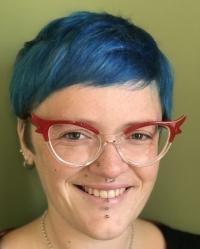
2 minute read
Applying a Neurodiversity Affirmative Approach to the Pluralistic Framework
Objectives: To date, there has been no research exploring the use of a pluralistic framework when working with neurodivergent (ND) clients. This research addresses the gap between theory and practice and explores therapist perspectives and experiences using the pluralistic framework as an ND therapist and/or when working with ND clients.


Methods: Eight pluralistic therapists were interviewed using semi-structured interviews. This study employed interpretative phenomenological analysis (IPA) to capture lived experiences and sense-making of the participants. The therapists had a range of experiences—some were ND themselves and working with ND clients.
Results: Six key themes emerged from the results: the importance of language; client strengths and cultural resources; collaboration and shared decision-making; demystifying therapy; learning events within therapy; and flexibility. These results were synthesised into two overarching themes: ND justice and the pluralistic model as a supportive framework for ND affirmative practice. The approaches within the participants' therapeutic interactions modelled a neurodiversity justice approach. There was a belief that the pluralistic framework could have been designed for neurological difference.
There was a deep respect for client experience along with hearing the client, giving voice, and respecting choice embedded in the approach. The participants were able to use the model to facilitate client autonomy and normalise them being part of their own processes both in therapy and in life.
Conclusion: This study provides insights into the experience of ND, which can be used to improve practice and increase knowledge in the field

Danielle is a pluralistic therapist and has a number of specialist areas including working with neurodivergent clients, eating difficulties, bereavement, and children and young people Danielle runs a successful nature-based and equine facilitated therapy Community Interest Company in Derby in England, supervising a number of staff.
Danielle Mills initially trained as an integrative therapist and went on to train in EquineFacilitated Psychotherapy and Learning (EFP/L) with LEAP Equine. Danielle has developed her training through The HERD Institute, where she is now a faculty member and delivers the UK training for EFP/L. Danielle has recently completed an MSc in pluralistic counselling and psychotherapy through IICP; she incorporates this approach into her equine work. Danielle has a PhD in nursing studies from the University of Nottingham and works as an associate academic for both the University of Derby and the Institute of Integrative Counselling and Psychotherapy.
Her interests lean towards research and education in neurodiversity as well as nature based and animal assisted therapeutic approaches – Danielle is also autistic and has ADHD

Doctor of Philosophy (PhD) in Nursing Studies; Master of Sciences (MSc) in Pluralistic Counselling and Psychotherapy; Postgraduate Certificate (PGCert) in Clinical Supervision; Diploma in Therapeutic Counselling; Diploma in Equine Facilitated Psychotherapy and Learning; Bachelor of Sciences (BSc)(Hons) in Counselling and Therapeutic Studies; Fellow of the Higher Education Academy (FHEA); Registered Accredited Member of the British Association of Counselling and Psychotherapy (MBACP Accred)










